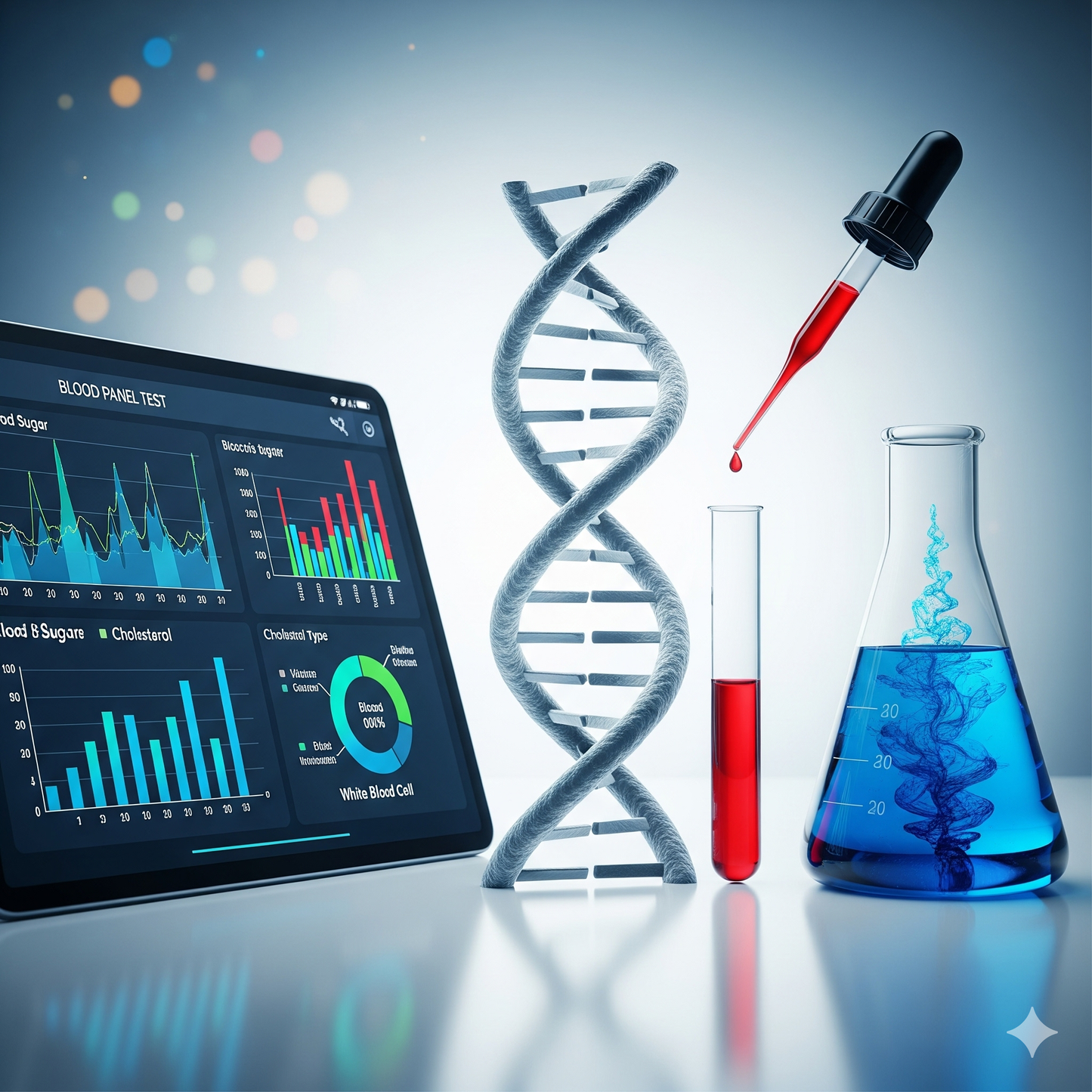DNA FitLabs Nutrient Deficiency Panel (Male & Female)
DNA FitLabs Nutrient Deficiency Panel (Male & Female)
Fasting Required: 10-12 hours
Lab: Quest Diagnostics
Specimen: Blood
Results: Average processing time 3-5 days
Note: Result turnaround times are an estimate and are not guaranteed. Our reference lab may need additional time due to weather, holidays, confirmation/repeat testing, or equipment maintenance.
Special Instructions: Refrain from vitamins, alcohol and fruits 24 hours prior to sample collection. Dietary supplements containing biotin may interfere in assays and may skew results to be either falsely high or falsely low. For patients receiving the recommended daily doses of biotin, draw samples at least 8 hours following the last biotin supplementation. For patients on mega-doses of biotin supplements, draw samples at least 72 hours following the last biotin supplementation.
Samples should be taken in the morning from patients in a fasting state, since iron values decrease by 30% during the course of the day and there can be significant interference from lipemia.
Tests Included:
Iron is an essential nutrient. It is needed in small quantities to help form normal red blood cells (RBCs) and is a critical part of hemoglobin which is the protein in red blood cells that binds oxygen in the lungs and releases it as blood travels to other parts of the body.
Vitamin B12 is an essential component in making red blood cells, and is important for nerve cell function. Deficiency can lead to different forms of anemia, as well as impaired liver and kidney function. Vitamin B12 is decreased in pernicious anemia, total or partial gastrectomy, malabsorption and certain congenital and biochemical disorders.
Vitamin D 25 hydroxy is used in the absorption of calcium and phosphorus in the body. As it promotes calcium absorption, it aids in proper growth and development of bones. Vitamin D also helps in strengthening teeth and bones. Secondly, one of the most important benefits of vitamin D is that it enhances the immune system of the body which consequently helps in reducing the risk of several diseases and infections.
Magnesium, this mineral is particularly important to nerves and muscles. Low magnesium is found in malnutrition, alcoholism, diabetes, hyperparathyroidism, and more. High magnesium is seen in kidney failure.
Comprehensive Metabolic Panel includes the following:
Glucose:
Blood sugar level, the most direct single test to uncover diabetes, may be used not only to identify diabetes, but also to evaluate how one controls the disease.
Kidneys:
Bun (Urea Nitrogen)—Another by-product of protein metabolism eliminated through the kidneys. BUN is an indicator of kidney function.
Creatinine, Serum—An indicator of kidney function
Bun/Creatinine Ratio—Calculated by dividing the BUN by the Creatinine
Glomerular Filtration (eGFR)—Provides an assessment of the filtering capacity of the kidney.
Fluids & Electrolytes:
Sodium—One of the major salts in the body fluid, sodium is important in the body's water balance and the electrical activity of nerves and muscles.
Potassium—Helps to control the nerves and muscles
Chloride—Similar to sodium, it helps to maintain the body's electrolyte balance
Carbon Dioxide, Total—Used to help detect, evaluate, and monitor electrolyte imbalances.
Calcium:
A mineral essential for development and maintenance of healthy bones and teeth. It is important also for the normal function of muscles, nerves and blood clotting.
Liver:
Protein, Total—Together with albumin, it is a measure of the state of nutrition in the body.
Albumin—Serum one of the major proteins in the blood and a reflection of the general state of nutrition
Globulin, Total—A major group of proteins in the blood comprising the infection fighting antibodies
Albumin/Globulin Ratio—Calculated by dividing the albumin by the globulin
Bilirubin, Total—A chemical involved with liver functions. High concentrations may result in jaundice.
Alkaline Phosphatase—A body protein important in diagnosing proper bone and liver functions
Aspartate Aminotransferase (AST or SGOT)—an enzyme found in skeletal and heart muscle, liver and other organs. Abnormalities may represent liver disease.
Alanine Aminotransferase (ALT or SGPT)—an enzyme found primarily in the liver. Abnormalities may represent liver disease.
No se pudo cargar la disponibilidad de retiro

